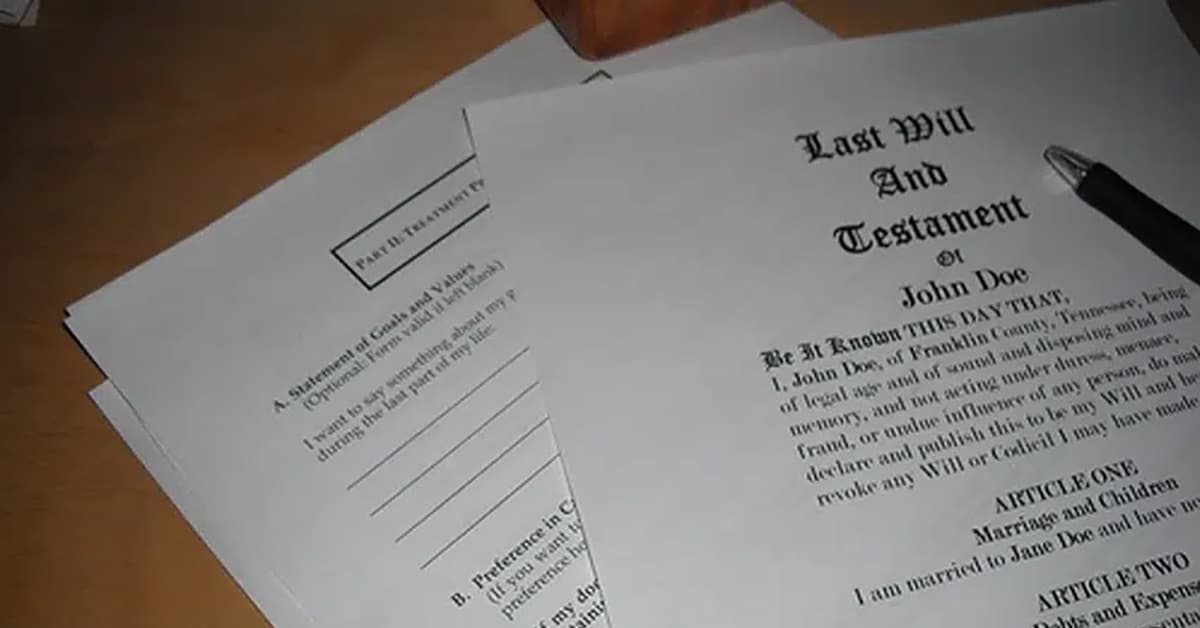by Houston Divorce Attorney Sam M. “Trey” Yates, III An effective estate plan should be…

An Introduction to Estate Planning
by Houston Divorce Attorney Sam M. “Trey” Yates, III
Many individuals believe that estate planning, or “leaving a legacy” is only for the rich. Without a doubt, estate planning is important for those who are wealthy. Yet, it has been our experience that the more modest your estate, the greater your need to arrange it for careful handling and disposition according to your wishes. It just makes sense to want to make your estate stretch further, to help those closest to you, and to better accomplish your charitable goals.
Why you need an estate plan
Deciding in advance on how to dispose of your estate at the end of your life is known simply as estate planning. If you have possessions or assets, you have an estate worthy of a plan, and the foundation for leaving a legacy. Possessions and assets you own also offer you an opportunity to give beyond your lifetime.
There are many benefits of developing an estate plan. Many of which could be personal. Other benefits you may not learn about until you explore this topic with an estate planning attorney. Creating an estate plan:
- Helps simplify or avoid probate
Probate is the legal process that validates a person’s will, settles debts and distributes remaining assets to those left behind. If there is no will, or the wrong kind of will, this process can get expensive and lengthy.
- Protects assets from “creditors or predators”
Appropriately chosen and written estate planning strategies can shield assets from lenders, unscrupulous family members, plaintiffs in personal injury suits, and others.
- Ensures your care if you become ill
Pulling together medical powers of attorney, HIPPA authorizations and advance directives can empower your family (and doctors) to provide the care you want if you become incapacitated due to illness.
- Can reduce tax liability
Depending on the size of your estate, a significant chunk of your assets could be at risk of going to the federal government without careful planning. The good news is, Texas does not have a state inheritance tax.
- Provides for children
If your children are minors and depend financially on you, a strong estate plan can take care of their needs when you are gone. Options include choosing a guardian for your minor children, appointing a trustee to oversee their finances until they are adults and determining when and how any money or property you left them is distributed.
- Provides for others
Your estate plan can also provide for adult children, low-income relatives and your favorite charities, while also ensuring these individuals or entities do not misuse or squander the assets, or lose them to creditors.
- Helps minimize family conflict
Sound estate planning can go a long way toward reducing friction among family and friends.
Here is a list of items that should be included in your estate plan.
- A revocable or living trust
This is a trust you can change at any time during your life. It details assets that will pass to your heirs after your death and instructions for the distribution of these assets. A trust allows your assets to be passed on without going through probate, which can be an expensive and lengthy process.
- A will
If you have a revocable trust, your will typically provides instructions for the distribution of any property not referenced in the trust. Without a revocable trust, your will may provide additional instructions.
- Medical power of attorney
If you become incapacitated and unable to make medical decisions for yourself, this document assigns someone else to make medical decisions for you
- Financial power of attorney
If you become incapacitated and unable to make financial decisions for yourself, this document assigns someone else to make financial decisions for you.
- Irrevocable trusts
These trusts for life insurance policies or other assets can help you avoid certain taxes and protect those assets from creditors, if done correctly. Once completed, however, they can be difficult to revise.
- HIPPA authorization
If you become ill, a Health Insurance Portability and Accountability Act (HIPPA) authorization allows people you designate to more easily access your medical information — such as critical details about your care and prescriptions.
When and how to revise and amend your estate plans or wills
Once you have an estate plan in place, think of it as dynamic, requiring you to review and evaluate its content and directives on a regular basis. Generally, you should expect to update your estate plan anytime you experience a major life change. Life happens and is full of unpredictable events. Relationships also evolve, end and begin. Unexpected financial gains or losses may prompt you to reevaluate your original goals or plan. You may experience shifts in your own internal value system and decide to take a different direction with your charitable donations, or other directives.
Here is a list of events that could trigger you to reappraise your original estate planning goals and its details along the way.
- A death in the family;
- A birth in the family;
- Divorce;
- A significant change in your assets or debt; and/or
- Changes to state or federal laws that might allow you to take advantage of new options to achieve your goals, or restrict your options
Other changes such as these may also prompt you to rethink or amend your estate plan.
- Market shifts, new unanticipated debts and changes to your portfolio;
- Changes in your health or the health of loved ones of key businesses associates;
- A trustee, guardian or executor gets sick, or is unable to fulfill duties; and/or
- New planning tools, technologies or strategies to manage your assets
Now what?
This article is a good place to start if you are considering estate planning, or even simply writing a will. But it is only a first step. Consider this an introduction on how to maximize your assets, ensure good healthcare for yourself in your later years, and provide for the next generation in your family. Since each estate is as unique as the individual creating an estate plan, you owe it to yourself to discuss your situation with an estate planning attorney with the skills and experience to handle your process effectively and efficiently.
Estate planning is important. If done well, it will ensure your wishes, protect your family and provide a legacy that expresses your values. In addition, the process and the plan also offer you peace of mind and a feeling that you can now be free to live out the rest of your years exploring, traveling, and following your passions, knowing you are free to live out your dreams.
You likely still have lots of questions and concerns about estate planning, call our office today and schedule a consultation on developing a plan that fits your and your family’s needs today and in the future.
Disclaimer — This article provides a general introduction and overview of the topic of estate planning and is not intended as a substitute for consultation with an attorney. For more information or specific legal advice on developing an estate plan or will, please contact a Houston divorce attorney at the office of Trey Yates Law at 713.932.7177..


